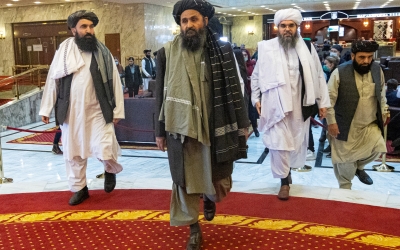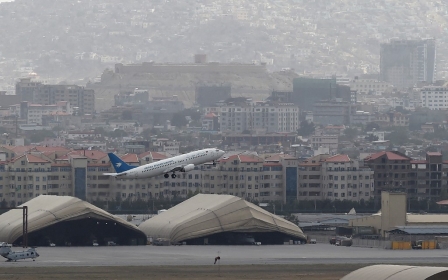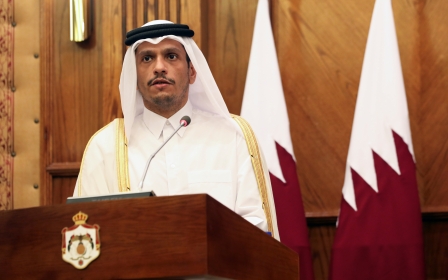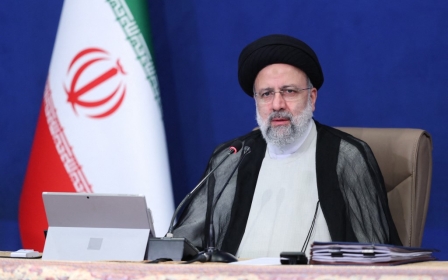Afghanistan: Bahrain to begin consultations with Gulf countries after Taliban takeover
Bahrain will begin consultations with the other Gulf Arab monarchies regarding the situation in Afghanistan in its capacity as current chair of the Gulf Cooperation Council (GCC), the kingdom's government media office said on Monday.
"The Council of Ministers has tasked the foreign minister to coordinate and consult with the GCC states regarding the developments in Afghanistan, in the framework of Bahraini presidency" of the group which also includes Saudi Arabia, the United Arab Emirates, Qatar and Oman, it said on Twitter.
New MEE newsletter: Jerusalem Dispatch
Sign up to get the latest insights and analysis on Israel-Palestine, alongside Turkey Unpacked and other MEE newsletters
Manama’s statement comes a day after the Taliban seized control of the Afghan capital Kabul, marking a victorious end to its 10-day offensive to take back power after it was toppled by US-led forces two decades ago in the aftermath of the 9/11 attacks.
Qatar, which had hosted inconclusive Afghan peace talks, is so far the only GCC country to have commented on the situation since the Taliban took control of Kabul, calling for a peaceful transition of power and a comprehensive solution.
Reports of chaos at Kabul airport have flooded social media as people scramble for a chance to leave the country.
The country’s president, Ashraf Ghani, is said to have fled to Uzbekistan, telling reporters that he left Afghanistan to avoid further bloodshed.
US Secretary of State Antony Blinken said Washington had "fulfilled" its original mission in Afghanistan, which was to oust al-Qaeda chief Osama bin Laden.
Despite billions of dollars of investment over four US administrations in Afghan government forces, they were still unable to defend the country in the face of the group’s advance, he said in an interview on Sunday.
Middle East Eye delivers independent and unrivalled coverage and analysis of the Middle East, North Africa and beyond. To learn more about republishing this content and the associated fees, please fill out this form. More about MEE can be found here.





